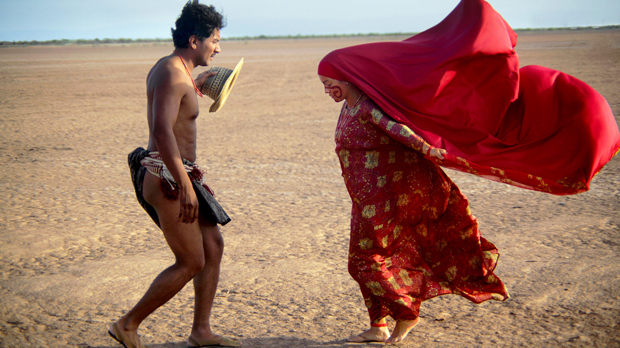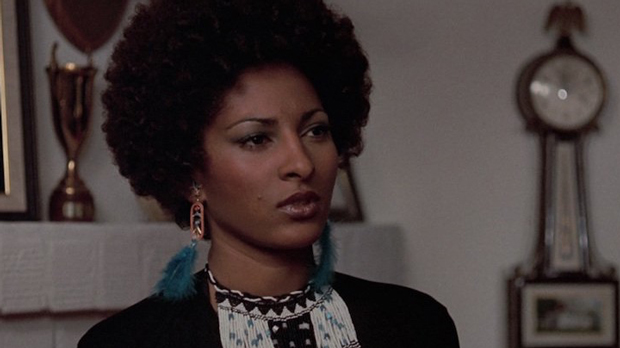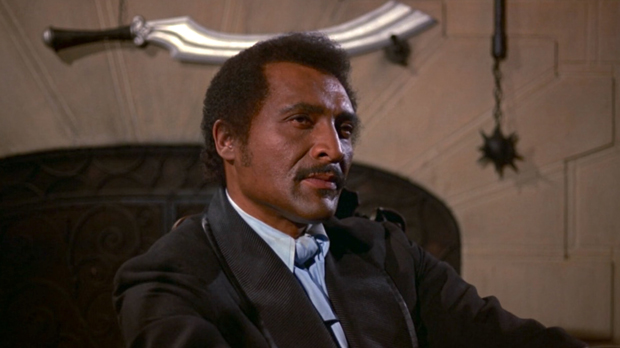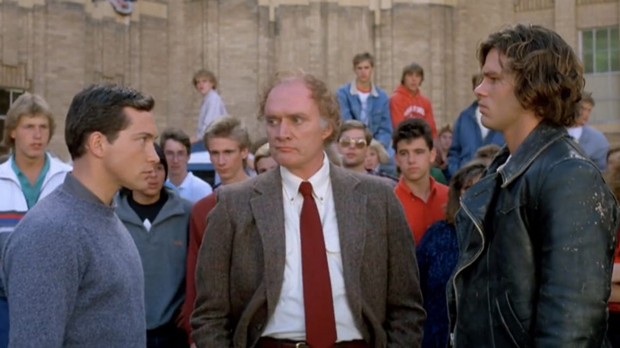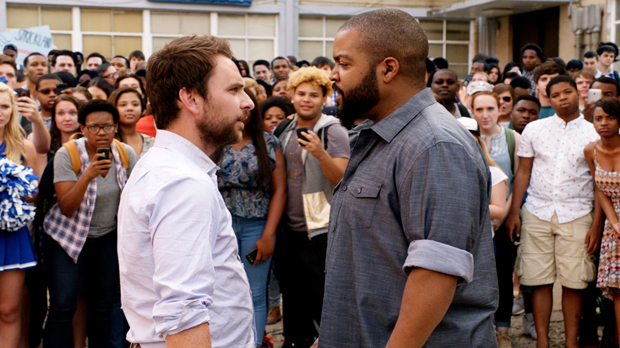 Birds of Passage (2018) The Orchard/Drama RT: 125 minutes No MPAA rating (violence, drugs, language, thematic elements) Director: Cristina Gallego and Ciro Guerra Screenplay: Maria Camila Arias and Jacques Toulemonde Music: Leonardo Heiblum Release date: March 8, 2019 (Philadelphia, PA) Cast: Carmina Martinez, Jose Acosta, Natalia Reyes, Jhon Narvaez, Greider Meza, Jose Vicente Cote, Juan Bautista Martinez, Aslenis Marquez. Spoken in Wayuu and Spanish w/English subtitles
Birds of Passage (2018) The Orchard/Drama RT: 125 minutes No MPAA rating (violence, drugs, language, thematic elements) Director: Cristina Gallego and Ciro Guerra Screenplay: Maria Camila Arias and Jacques Toulemonde Music: Leonardo Heiblum Release date: March 8, 2019 (Philadelphia, PA) Cast: Carmina Martinez, Jose Acosta, Natalia Reyes, Jhon Narvaez, Greider Meza, Jose Vicente Cote, Juan Bautista Martinez, Aslenis Marquez. Spoken in Wayuu and Spanish w/English subtitles
Rating: ****
In the 1984 sleeper hit The Gods Must Be Crazy, an object from the modern world- i.e. a Coke bottle dropped from a plane- causes great discord among a tribe of peaceful Bushmen. In the Colombian import Birds of Passage, a Wayuu tribe’s traditional way of life is all but eradicated by greed and violence when they become involved in the drug trade. Both films are brilliant in their own specific ways but whereas the first takes a comical approach to the clash between tradition-bound cultures and so-called civilized society, the latter is a dark look at the end of an old way of life. Birds of Passage, directed by Cristina Gallego and Ciro Guerra (Embrace of the Serpent), is as mournful as the song sung by the old man in the opening moments. It’s also as riveting a crime drama as The Godfather, Scarface or any given season of The Sopranos.
The story begins with a young woman, Zaida (Reyes), emerging from a hut after her one-year period of isolation as per Wayuu custom. Her coming-out symbolizes her readiness for marriage. Rapayet (Acosta), a young man from a neighboring family, announces he wants to take her as his wife. Her mother Ursula (Martinez), not convinced he’s worthy of Zaida, demands a huge dowry he couldn’t possibly pay as it’s way beyond his means. She wants 30 goats, 20 cows and a bunch of valuable necklaces. Determined to get the girl, he and his best friend/partner Moises (Narvaez) bust their butts trading coffee and such until they overhear a shop owner talking about a group of young American Peace Corps volunteers looking to buy pot. Moises knows somebody, Anibal (Bautista), in the business and before long, they’re making big money hauling huge bales of weed to drug runners who fly in and out on small planes. Of course, he’s able to pay the dowry much to Ursula’s disappointment.
Like all criminal enterprises, it isn’t long before things start going south. It starts with Moises, a hot-tempered sort, shooting a couple of runners he thinks betrayed him. Murder is taboo among the Wayuu; it’s an act punishable by eternal damnation. In order to maintain peace and keep doing business with Anibal, Rapayet is forced to execute Moises. Things continue to spiral downward until an act of violence by young tribal leader Leonidas (Meza) ignites a war.
Birds of Passage, which takes place between 1968 and 1980, is divided into five cantos (songs): “Wild Grass”, “The Graves”, “Prosperity”, “The War” and “Limbo”. It’s spoken mainly in Wayuu with a little bit of Spanish. Like a documentary on the National Geographic Channel, it gives us an up-close look at an indigenous people that doesn’t always welcome outsiders. We see their rituals and learn their different customs and superstitions. They strongly believe in the magic of talismans and dream interpretation. It’s been this way for generations. With the introduction of wealth through illegal activity, they begin to lose their identity. They obtain trucks. Leonidas turns into a spoiled little a**hole who forces a fellow tribe member to eat dog feces for a big pile of money. Rapayet moves his family into a fancy house with all the modern conveniences. Of course, his children will grow up not knowing where they come from. The final scene is as haunting as they come. More than a mere film, Birds of Passage serves as an elegy to a disappearing culture, one of many around the world as 21st century technology takes over.
Unlike many similar crime dramas involving drugs, Birds of Passage doesn’t sensationalize the violence common to that lifestyles. The killings generally occur offscreen; we only see the bloody results. The climactic confrontation is seen in an unbroken long shot outside Rapayet’s house. Again, we’re only shown the bloody aftermath. It’s quite effective actually.
The acting in Birds of Passage is superb. It helps that the writers humanize their characters by accurately depicting their culture. Not only do the leads do excellent work, they’re surrounded by people who look like they belong in the Guajira region. It has a strong sense of time and place. It also has a great visual approach. The cinematography is amazing. Nature is presented as both a comfort and an imposing place. You get a real sense of flavor regarding the culture. Gallego and Guerra deftly blend crime drama tropes and magical realism to create a truly original cinematic experience enhanced by a wonderful score by Leonardo Heiblum.
Birds of Passage was selected as Colombia’s entry for this past year’s Academy Awards. It failed to secure a nomination but in all fairness, it was a strong year for foreign films. In another year, it would have been on the ballot. It is an outstanding film, both riveting and tragic. It’s simultaneously timeless and contemporary. If Shakespeare set one of his tragedies in Colombia, it would be something like this.
